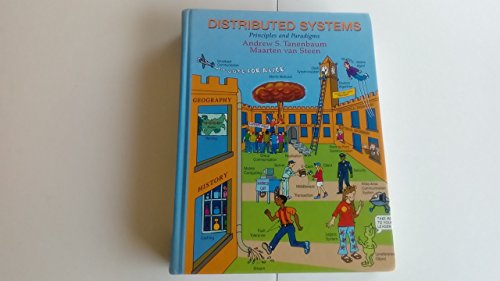Virtually every computing system today is part of a distributed system. Programmers, developers, and engineers need to understand the underlying principles and paradigms as well as the real-world application of those principles. Now, internationally renowned expert Andrew S. Tanenbaum – with colleague Martin van Steen – presents a complete introduction that identifies the seven key principles of distributed systems, with extensive examples of each.Adds a completely new chapter on architecture to address the principle of organizing distributed systems. Provides extensive new material on peer-to-peer systems, grid computing and Web services, virtualization, and application-level multicasting. Updates material on clock synchronization, data-centric consistency, object-based distributed systems, and file systems and Web systems coordination.For all developers, software engineers, and architects who need an in-depth understanding of distributed systems.
Andrew Tanenbaum and Maarten van Steen cover the principles, advanced concepts, and technologies of distributed systems in detail, including: communication, replication, fault tolerance, and security. Intended for use in a senior/graduate level distributed systems course or by professionals, this text systematically shows how distributed systems are designed and implemented in real systems. Written in the superb writing style of other Tanenbaum books, the material also features unique accessibility and a wide variety of real-world examples and case studies, such as NFS v4, CORBA, DCOM, Jini, and the World Wide Web.
FEATURES - Detailed coverage of seven key principles.
An introductory chapter followed by a chapter devoted to each key principle: communication, processes, naming, synchronization, consistency and replication, fault tolerance, and security, including unique comprehensive coverage of middleware models. - Four chapters devoted to state-of-the-art real-world examples of middleware.
Covers object-based systems, document-based systems, distributed file systems, and coordination-based systems including Corba, DCOM, Globe, NFS v4, Coda, the World Wide Web, and Jini. - Excellent coverage of timely, advanced distributed systems topics:
Security, payment systems, recent Internet and Web protocols, scalability, and caching and replication. - NEW—The Prentice Hall Companion Website for this book contains PowerPoint slides, figures in various file formats, and other teaching aids, and a link to the author's Web site. Please visit http://www.prenhall.com/tanenbaum.
![]()
